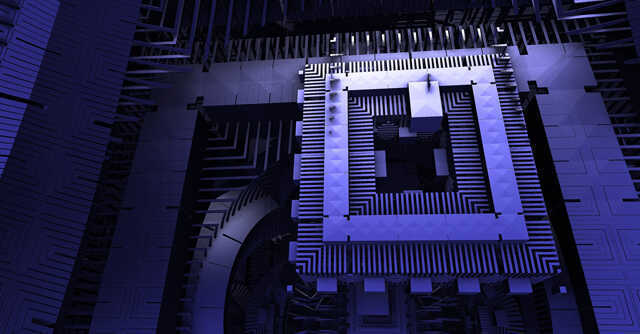
Researchers show how conventional silicon can fix high error rates in quantum computers


In a major breakthrough in making quantum computers error-free, researchers from three countries have separately developed quantum processors using conventional semiconductor manufacturing technology and achieved an accuracy of up to 99.9% for one qubit operation.
All the three research papers were published yesterday in the science journal Nature.
Conventional computers use some form of error correction. However, the laws of quantum physics restrict how correction works in a quantum computer. One of the reasons for this is that they are highly susceptible to interference leading to errors in quantum algorithms running on it.

A typical quantum bit gets randomized in one one-thousandth of a second, whereas a conventional semiconductor can perform billions of operations without facing any such issues.
Interference occurs due to intervention from noise in the environment, which disrupts the quantum state.
Unlike conventional computers, which use a binary system of 1 and 0 to manipulate and store data, quantum computers use quantum bits which use a third state called superposition that allows them to encode information in both 1 and 0 at the same time.

While this leads to much faster processing, it also makes error correction in a quantum computer a lot more difficult.
Researchers at the University of New South Wales (UNSW) achieved an accuracy of up to 99.95% for one-qubit and 99.37% for two-qubit operations using a three-qubit system comprising an electron and two phosphorus atoms, introduced in silicon.
According to David Jamieson, a research leader at the University of Melbourne, the phosphorus atoms were introduced in the silicon chip using ion implantation, the same method used in all existing silicon computer chips.

"This ensures that our quantum breakthrough is compatible with the broader semiconductor industry," he added.
The second group of researchers from the Netherlands achieved 99.87% accuracy in one-qubit and 99.65% accuracy in two-qubit operations using electron spins in quantum dots in a stack of silicon and silicon-germanium alloy.
The third group from Japan also achieved 99.84% accuracy for one-qubit and 99.51% for two-qubit operations in a two-electron system using the same technique that was used by researchers from the Netherlands.

Andrea Morello, professor at UNSW, who led the research, points out, quantum error correction protocols typically need error rates below 1%. "Having now achieved this goal, we can start designing silicon quantum processors that scale up and operate reliably for useful calculations," he added.
The researchers believe that silicon chips are stable enough to hold quantum information for a long period. In earlier research, Morello has shown that quantum information can be stored in silicon for 35 seconds.
"In the quantum world, 35 seconds is an eternity. In the famous Google and IBM superconducting quantum computers the lifetime is about a hundred microseconds – nearly a million times shorter,” said Morello.

Big tech companies such as IBM and Google that are betting heavily on quantum computing have talked about the importance of quantum error correction and are said to be working in this regard as they scale to machines with 1000 or more qubits.
